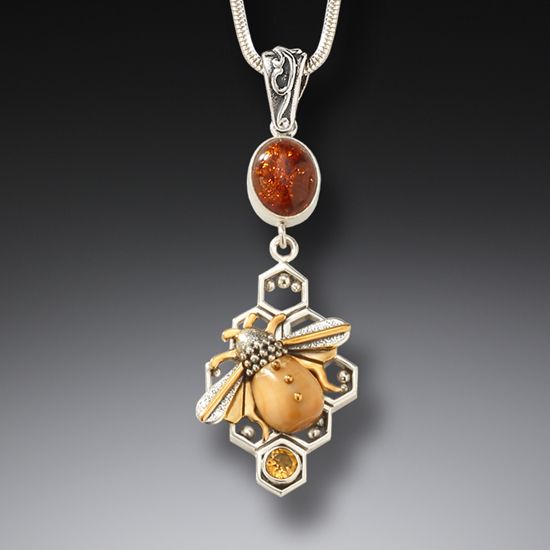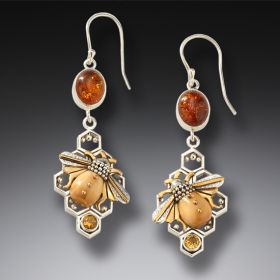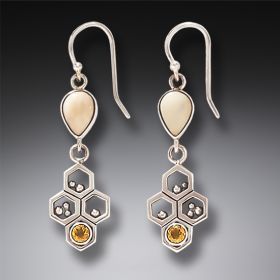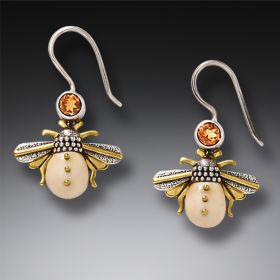Honey bees are such important little pollinators and they are worth saving. We hope our bee jewelry can help keep the conversation going!
- Hand carved ancient walrus ivory bees
- Faceted citrine accent stone
- Amber accent
- 14 kt gold fill accents
- Sterling silver honeycomb setting
Fossilized Walrus Honeycomb Bee Pendant
It takes the work of 12 honey bees to make just one teaspoon of honey. Over a span of several weeks, they travel hundreds of miles and visit thousands of flowers to collect nectar, which gets turned into honey and stored in wax honeycomb. A hive needs about 35 pounds of honey to survive the winter months, but lucky for us, they usually make quite a bit extra so there's enough for us to have some too. Honey bees are among the many species with rapidly declining populations due to pesticides and habitat loss. How can you help? By planting flowers, not using pesticides, and continuing the conversation with your friends and family. Our hope is that our bee jewelry can facilitate discussions about pollinators and why it's so very important to protect them.
The glistening citrine and golden amber are evocative of the delicious honey, pollen, and propolis that we associate with honey bees. The body of the bee is carved from fossilized walrus ivory from St. Lawrence Island, where the native Yupik have exclusive rights to harvest and sell this centuries old material. While buried, the fossil acquires color from minerals in the soil resulting in various shades of fossilized ivory. It's these variations in pattern and color that result in a unique material that is collected and treasured all over the world.





